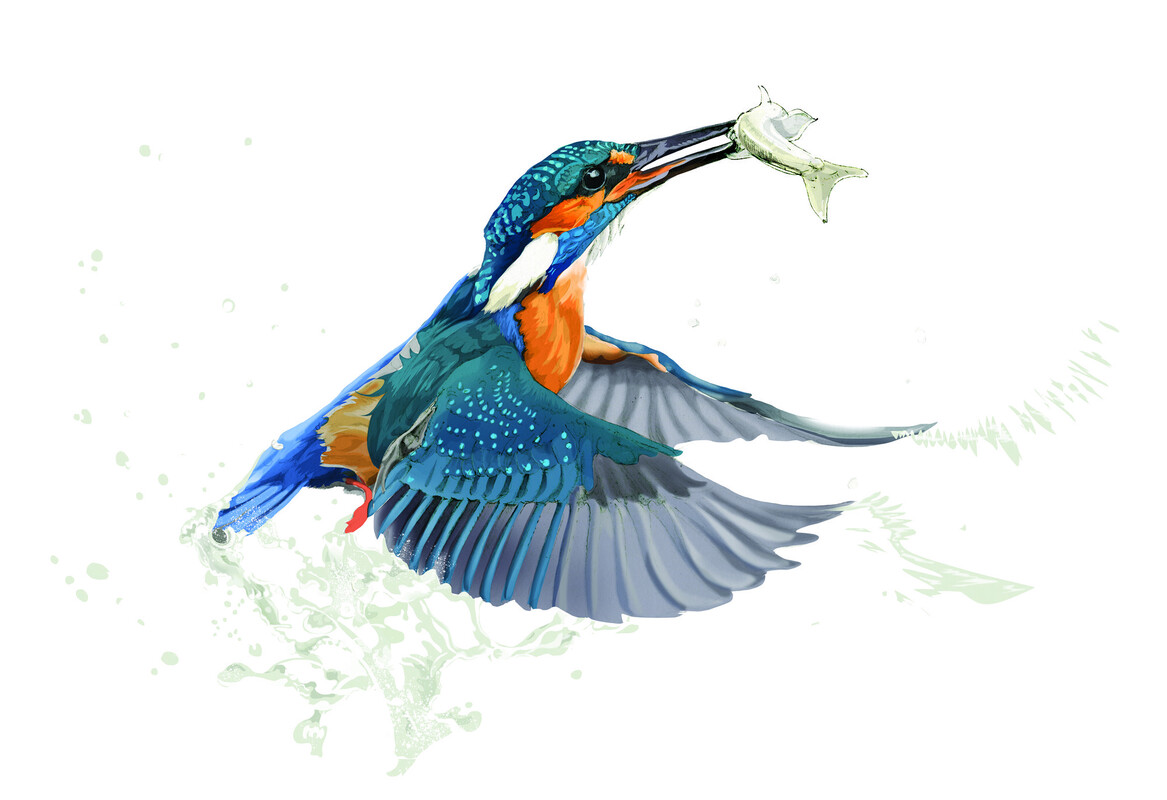Kingfishers mainly eat fish, insects and worms. They are great at catching fish, often sitting on a branch over a river – or even hovering – watching for the movement of small fish such as minnows, sticklebacks, stone loach and small trout. When they see a fish they dive straight into the water to catch it.
Kingfisher pairs start to make their nests in April. They dig out a tunnel – up to a metre long – in a steep riverbank and then make the end of the tunnel into a rounded nest chamber. Females lay up to 7 eggs and both parents help to keep them warm until they hatch, and then both feed the chicks.

